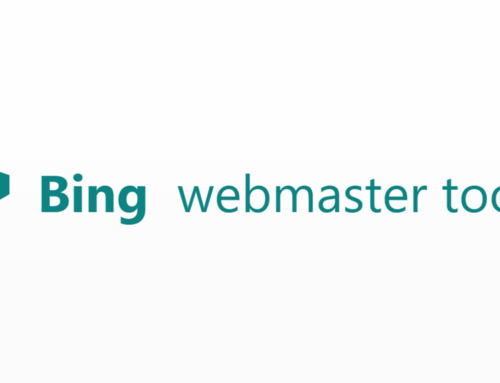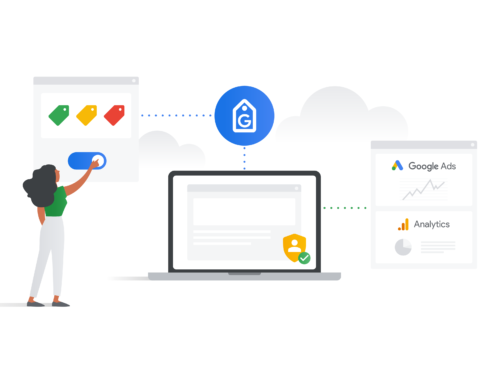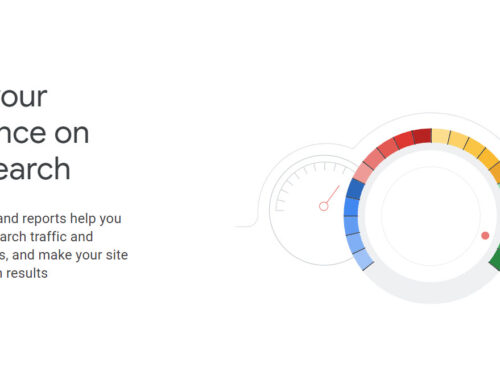Introduction To Online Reputation Management In Digital Marketing
In today’s digital age, online reputation management has become an essential component of digital marketing. With the proliferation of social media platforms, review websites, and search engines, businesses of all sizes need to be vigilant about how they are perceived online.
What Is Online Reputation Management?
Online reputation management is the practice of monitoring, influencing, and maintaining a positive online reputation for a brand or individual. It involves a combination of proactive and reactive measures that can help to safeguard a brand’s image, manage its online presence, and mitigate any negative publicity or reviews. In this era of online reviews and social media influencers, the reputation of a business can make or break its success.
Digital marketing is a powerful tool for managing an online reputation. By using digital channels to monitor customer feedback, manage social media accounts, create high-quality content, optimise online presence for search engines, and place ads strategically, businesses can promote positive content and counteract negative reviews.
In today’s digital age, a strong online reputation is essential for the success of any business, and digital marketing provides a range of solutions for managing it effectively.
Consumer Trust And Brand Loyalty In The Digital Age
Consumer trust and brand loyalty are critical factors that can make or break a business. By establishing a reputation for honesty, transparency, and reliability, businesses can build trust with their customers, which can lead to increased brand loyalty and customer retention. Companies that prioritise these factors in their operations can create a competitive advantage and long-term success in the marketplace.
What Is Consumer Trust?
Consumer trust is crucial for businesses, especially in the digital world, where it pertains to the level of confidence that consumers have in the security, privacy, and authenticity of online transactions. It is directly linked to customer loyalty and satisfaction and can be established by using secure payment methods, protecting personal data, providing transparent policies, and authenticating online identities.
The more trust consumers have in digital interactions, the more likely they are to engage with businesses, contributing to the growth of the digital economy.
What Is Brand Loyalty?
Brand loyalty measures how committed a customer is to consistently choosing a particular brand over others. It leads to repeat business and positive word-of-mouth marketing.
Quality products/services, customer service, brand reputation, and emotional connection all contribute to building brand loyalty, which is essential for businesses to create a loyal customer base and increase revenue
Impact Of Digital Marketing On Trust And Loyalty
Digital marketing has a significant impact on trust and loyalty by providing businesses with various tools to engage with customers, build relationships, and establish a positive online reputation.
Personalisation
Digital marketing enables businesses to personalise their marketing efforts and tailor their messaging to the specific needs and interests of their target audience. By delivering relevant content and personalised experiences, businesses can build trust and foster a stronger emotional connection with their customers.
Engagement
Digital marketing channels, such as social media, email, and chatbots, provide businesses with a direct line of communication with their customers. By engaging with customers in real-time and responding to their feedback and concerns, businesses can establish a sense of trust and demonstrate their commitment to customer satisfaction.
Transparency
Digital marketing can help businesses be more transparent about their operations and policies, such as data privacy, pricing, and product information. By being transparent, businesses can build confidence and loyalty with their customers, who are more likely to do business with companies they trust.
Reputation Management
Digital marketing offers businesses a range of tools to monitor and manage their online reputation. By responding to negative feedback and promoting positive reviews, businesses can build trust and establish a strong online reputation, which can lead to increased loyalty.
Digital Marketing Channels And Their Impact On Online Reputation
Digital marketing channels offer businesses various opportunities to connect with customers and shape their online reputation. In this context, it is crucial to understand how different digital marketing channels can impact online reputation and how to leverage them effectively to build a positive brand image.
Website Design And User Experience (UX)
Website design and user experience play a notable role in shaping online reputation, as they directly impact how customers perceive and interact with a business online through:
- First impressions
- User experience design
- Content
- Security
- Reviews and ratings
Search Engine Optimisation (SEO) And Reputation
SEO can have a significant impact on online reputation by determining how easily potential customers can find a business online and what information they find through:
- Search engine rankings
- Online presence and visibility
- Keyword targeting
- Website optimisation strategy
Content Marketing And Thought Leadership
Content marketing and thought leadership can have an important affect on online reputation by positioning a business as an authority in its industry and establishing a positive brand image through:
- Establishing expertise
- Attracting the right audience
- Controlling online narrative
- Establishing brand identity and image
Email Marketing And Personalised Communication
Email marketing and personalised communication can impact online reputation by creating a direct line of communication with customers and building strong relationships based on trust and loyalty through:
- Building trust
- Driving engagement
- Personalisation
Social Media Marketing And Community Management
Social media marketing and community management can have a significant impact on online reputation by providing a platform for businesses to engage with customers, build relationships, and shape the way they are perceived online through:
- Brand awareness
- Customer engagement
- Reputation management
- Influencer marketing
Online Advertising And Brand Perception
Online advertising and brand perception can influence online reputation in several ways. By leveraging these strategies, businesses can enhance their online reputation and establish a positive brand image among their target audience.
- Targeted advertising
- Display advertising
- Retargeting
- Brand associations
Impact Of Online Reputation Management On Consumer Trust Through Digital Marketing
With the rise of digital marketing, businesses have access to a variety of channels to manage their online reputation and establish a positive brand image. This topic explores the impact of online reputation on consumer trust through digital marketing strategies.
Significance Of Online Reviews And Ratings
Online reviews and ratings have become an essential component of the digital marketing landscape. They play a significant role in shaping consumer trust and perception of a business.
With the widespread use of the internet, consumers now have access to an abundance of information about businesses before making a purchase decision. As a result, online reviews and ratings have a significant impact on consumer trust, and businesses must manage their online reputation carefully to maintain trust and credibility.
Importance Of Social Media Presence And Engagement
Social media has become a critical component of digital marketing, offering businesses an opportunity to connect with their target audience on a more personal level. A strong social media presence and engagement can build consumer trust by creating a sense of transparency, accessibility, and responsiveness.
Through social media, businesses can showcase their brand values, respond to customer inquiries and concerns promptly, and build a loyal following. A lack of social media presence or poor engagement can damage consumer trust and make it difficult for businesses to establish a positive online reputation.
Why Public Relations And Crisis Management Matter
Public relations (PR) and crisis management are essential for maintaining consumer trust in digital marketing. PR helps to create a positive brand image by generating favourable media coverage and building relationships with key stakeholders.
In the event of a crisis, such as a product recall or negative publicity, crisis management can help mitigate the damage to a company’s reputation by addressing the issue proactively and transparently. Effective PR and crisis management can help businesses build consumer trust by demonstrating their commitment to transparency and accountability.
Perfect Your Online Customer Service And Response Time
Timely and efficient online customer service is essential for building consumer trust in digital marketing. Consumers expect quick and helpful responses to their inquiries and concerns, which can lead to increased loyalty and advocacy.
However, slow response times and lack of customer service can damage consumer trust, resulting in negative reviews and feedback. To maintain and build consumer trust, it’s crucial for businesses to perfect their customer service and response time.
Understanding Influencer Marketing And Endorsements
Influencer marketing impacts consumer trust in digital marketing through endorsements from credible sources. Consumers rely on recommendations from trusted sources, and influencer marketing leverages this trust by promoting products or services to their followers.
Although, to maintain consumer trust, influencer marketing must be ethical and transparent, with proper disclosure of sponsored content and transparency about the relationship between the influencer and the brand.
Know About Online Privacy And Security In Digital Marketing
Online privacy and security play a crucial role in impacting consumer trust in digital marketing. Consumers are increasingly concerned about the safety and security of their personal information online, and businesses that prioritise privacy and security can establish themselves as trustworthy and reliable.
By implementing strong security measures and protecting customer data, businesses can reassure consumers that their information is safe and build trust. This can lead to increased customer loyalty and repeat business for the company.
Impact Of Online Reputation Management On Brand Loyalty Through Digital Marketing
The impact of online reputation on brand loyalty is a crucial consideration in digital marketing. A business’s online reputation can influence how consumers perceive the brand and can ultimately impact their loyalty to the brand.
Consistent Brand Messaging And Communication
Consistent brand messaging and communication are key factors that can contribute to brand loyalty in digital marketing. Ensuring that all messaging across various digital channels is consistent, businesses can establish themselves with a clear and recognisable brand identity.
In turn, increasing the chances of customers remaining loyal to the brand as it resonates with them. By leveraging these channels to deliver consistent messaging, businesses can strengthen their brand identity and build long-term customer loyalty.
Positive Online Customer Experiences
With customers having instant access to information at their fingertips, providing positive online customer experiences is essential for building brand loyalty through digital marketing.
When providing exceptional online customer experiences, businesses can stand out from competitors and establish and grow a loyal customer base. By ensuring your customer experience and delivering positive interactions across digital channels, businesses can improve brand loyalty and foster long-term customer relationships.
Rewards And Loyalty Programs In Digital Marketing
Rewards and loyalty programs can have a considerable impact on brand loyalty in digital marketing. These programs are designed to incentivise customers to return to a business and make repeat purchases. By offering rewards, such as discounts, free products, or exclusive access to events or content, businesses can increase customer engagement and loyalty.
Additionally, rewards and loyalty programs can provide valuable data and insights into customer behaviour, enabling businesses to optimise their marketing strategies and improve overall customer satisfaction.
Community Building And Customer Engagement
Community building and customer engagement are essential components of digital marketing that can have a major influence on brand loyalty. By creating a community around a brand, businesses can foster a sense of belonging and loyalty among their customers. This can be achieved through various digital marketing channels, such as social media, forums, and email marketing.
Community building involves creating a space where customers can engage with each other and with the brand, sharing feedback, experiences, and ideas. By engaging with customers in these communities, businesses can build trust and establish long-term relationships with their customers.
Customer engagement is also critical in digital marketing, as it involves actively interacting with customers across various touchpoints, such as social media, email, and customer support channels.
By providing personalised experiences and responding to customer inquiries and feedback in a timely manner, businesses can demonstrate their commitment to customer satisfaction and build stronger relationships with their customers.
Brand Transparency And Authenticity In Digital Marketing
Brand transparency and authenticity in digital marketing refer to the practice of being honest and open about a company’s values, mission, and practices. This includes being transparent about the sourcing of products, the manufacturing process, and the treatment of employees.
Consumers today are more aware and conscious of where they spend their money and are likely to support brands that align with their values. By providing transparent information about their values, practices, and the impact of their products or services, businesses can attract and retain customers who share similar values. This can lead to increased customer loyalty, repeat purchases, and positive word-of-mouth marketing.
Strategies For Managing And Improving Online Reputation In Digital Marketing
It’s essential to have effective strategies in place for managing and improving online reputation through digital marketing. Such strategies can help businesses maintain a positive image, build trust with customers, and ultimately drive growth.
Monitoring And Listening To Online Conversations
By actively monitoring social media platforms, review sites, and other online channels, businesses can quickly identify and respond to any negative feedback or comments, and address customer concerns in a timely and effective manner.
This can help to prevent potential issues from escalating and damaging the brand’s reputation, while also demonstrating to customers that their opinions and feedback are valued.
Responding To And Managing Customer Feedback
This involves promptly addressing any negative comments or reviews to show customers that their concerns are being taken seriously. By responding in a professional and empathetic manner, businesses can show that they value their customers and are committed to providing a positive experience.
Additionally, by addressing negative feedback publicly, businesses can demonstrate their transparency and commitment to resolving issues.
Encouraging Positive Reviews And Testimonials
Encouraging positive reviews and testimonials is a strategy that businesses can use to manage and improve their online reputation in digital marketing. By providing excellent customer service and actively soliciting feedback from customers, businesses can encourage satisfied consumers to leave positive reviews and testimonials on various platforms such as social media, review sites, and their websites.
This can help to offset any negative feedback and showcase the business’s strengths and positive attributes, therefore improving its overall online reputation.
Developing A Strong Digital Marketing Strategy
A strong digital marketing strategy aligned with the company’s values and messaging can improve online reputation. It can identify effective channels to engage the target audience, ensure communication is consistent, transparent and authentic, and establish trust with the audience. A cohesive online presence can drive customer loyalty, advocacy and help the company respond to changing market conditions while staying ahead of the competition.
Collaborating With Influencers And Industry Partners
Collaborating with influencers and industry partners in digital marketing can improve online reputation by providing exposure to a wider audience and increasing credibility through association with reputable sources.
By partnering with influencers and industry leaders, a business can tap into its established networks and benefit from their endorsement, thereby enhancing its reputation and increasing its reach. This strategy can also lead to valuable collaborations and partnerships that can help to solidify a business’s reputation in its industry.
Metrics To Measure Online Reputation, Consumer Trust, And Brand Loyalty In Digital Marketing
In digital marketing, it is crucial to measure the impact of your strategies on online reputation, consumer trust, and brand loyalty. Metrics provide valuable insights into the effectiveness of your efforts and help identify areas for improvement. Understanding the metrics to measure online reputation, consumer trust, and brand loyalty is essential for developing successful digital marketing campaigns.
Net Promoter Score (NPS)
NPS is a popular metric to measure customer loyalty and satisfaction in digital marketing. It asks customers how likely they are to recommend a company’s product or service to a friend or colleague on a scale of 0 to 10. The NPS score ranges from -100 to +100, with a higher score indicating greater customer loyalty and satisfaction.
Customer Satisfaction Score (CSAT)
The Customer Satisfaction Score (CSAT) is a digital marketing metric that measures customers’ satisfaction levels with a product, service, or brand interaction. It’s expressed as a percentage and obtained through customer surveys or feedback forms. It helps identify areas for improvement and track customer service success, with higher scores indicating greater customer satisfaction.
Customer Effort Score (CES)
Customer Effort Score (CES) is a metric to measure how easy or difficult it is for customers to interact with a company or brand. It’s measured by asking customers to rate their experience on a scale of 1 to 5, with the goal of identifying areas of improvement for a more positive customer experience.
Online Engagement Metrics
Online engagement metrics refer to the measurement of user interactions with digital marketing content, such as likes, shares, comments, and views on social media platforms or websites. These metrics are used to gauge the level of interest, engagement, and overall sentiment of consumers towards a brand, product, or service.
By monitoring and analysing online engagement metrics, businesses can gain insights into the effectiveness of their digital marketing strategies and adjust them accordingly to improve online reputation, consumer trust, and brand loyalty.
Sentiment Analysis
Sentiment analysis quantifies online sentiment towards a brand or product. Natural language processing (NLP) algorithms determine text as positive, negative, or neutral. This helps businesses understand brand perception and improve their digital marketing strategy.
Return On Investment (ROI) For Digital Marketing Efforts
ROI (Return On Investment) is a financial metric used to measure the profitability of a digital marketing campaign by comparing its cost to the revenue generated. It helps evaluate a campaign’s effectiveness and make informed decisions about future investments, including online reputation management, consumer trust building, and brand loyalty initiatives.
Case Studies And Best Practices In Digital Marketing
Case studies and best practices in digital marketing refer to successful real-world examples and effective strategies used by companies to achieve their marketing objectives. These case studies and best practices can provide valuable insights into the industry trends and best practices for digital marketing.
4 Examples Of Businesses With Strong Online Reputations Through Digital Marketing
Amazon
Amazon is known for its exceptional customer service and user-friendly online platform. Their reputation is built on a consistent and seamless online shopping experience for customers, which has earned them a loyal customer base and positive reviews.
Canva
Canva is an online design platform that allows users to create graphics and designs for various purposes. The company has a solid online reputation due to its user-friendly interface, regular updates and improvements, and active social media presence.
Airbnb
Airbnb has established a solid online reputation by focusing on customer reviews and feedback. By encouraging guests to leave reviews and ratings after their stays, Airbnb has built a reputation for providing safe, comfortable, and unique accommodations. Their digital marketing efforts also include engaging social media content and personalised email marketing.
Nike
Nike is a brand that has successfully utilised social media marketing to build a strong online reputation. Their campaigns often feature inspiring messages and endorsements from popular athletes, resonating with their target audience and generating engagement.
4 Success Stories In Improving Online Reputation Using Digital Marketing
Tourism Australia
The organisation used digital marketing to improve the country’s image as a tourist destination. They created a social media campaign called “Best Jobs in the World” where they advertised six dream jobs in Australia. The campaign went viral and resulted in a 20% increase in tourism in Australia.
Qantas Airlines
Airlines used digital marketing to rebrand and improve its image after facing several setbacks. They focused on delivering exceptional customer service and creating engaging content on their social media platforms. This resulted in an increase in positive customer sentiment and a boost in ticket sales.
Bunnings Warehouse
Bunnings used digital marketing to improve its online reputation by providing helpful content to its customers. They created a series of “how-to” videos and guides for home improvement and gardening. These videos and guides gained a lot of traction and established Bunnings as an authority in the DIY space.
Woolworths
One of Australia’s leading supermarket chains used digital marketing to improve its online reputation by engaging with customers on social media. They responded to customer queries and complaints promptly and provided helpful information on their products. This led to an increase in positive sentiment towards the brand and customer loyalty.
Lessons Learned From Businesses With Damaged Online Reputations
A damaged online reputation can have significant consequences for a business, including loss of customers, decreased sales, and damage to its entire brand image and reputation.
Tips for managing online reputation:
- Act quickly and take responsibility for mistakes
- Listen to customer feedback and address issues
- Be transparent about operations and policies
- Have a crisis management plan for negative publicity and crises.
Future Trends And Challenges In Online Reputation Management And Digital Marketing
As the digital marketing landscape continuously evolves, businesses face new challenges and opportunities in managing their online reputation. Keeping up with technological advancements and shifting consumer behaviour is crucial for businesses to maintain and enhance their digital reputation.
Impact Of Emerging Technologies
Emerging technologies such as AI and blockchain present both opportunities and challenges to online reputation management in digital marketing. AI-powered chatbots and voice assistants offer faster and more personalised customer service, but their use must be carefully managed to maintain a company’s brand and reputation.
Blockchain technology provides a secure and transparent way to conduct transactions, but businesses must address concerns about data privacy and security to avoid damaging their reputation. As these technologies continue to evolve, businesses must stay informed and adapt their online reputation management strategies to remain competitive.
Evolving Consumer Expectations And Preferences
Evolving consumer expectations and preferences can also present challenges to online reputation management in digital marketing. As consumers become more socially conscious and digitally savvy, businesses will need to adapt and incorporate these changes into their reputation management strategies to meet their customers’ needs and expectations.
Increased Focus On Data Privacy And Regulation In Digital Marketing
Emerging technologies have led to increased concerns about data privacy and security, resulting in a greater focus on regulation and compliance in digital marketing.
In Australia, the implementation of the Privacy Amendment (Notifiable Data Breaches) Act 2017 and the Australian Privacy Principles (APPs) has heightened the need for businesses to be transparent about their data collection and use, which can impact their online reputation if mishandled.
Therefore, businesses must be vigilant in complying with these regulations and maintaining trust with their customers to safeguard their online reputation.
Choose Integral Media
Integral Media is a reliable partner that can help you optimise your content and build a solid online reputation. Our team of experienced professionals works closely with clients to create customised strategies that will improve your visibility, drive traffic to your website, and enhance your reputation in the digital world.
Contact us today to learn more about how we can help you grow your business through effective digital marketing and online reputation management.






























